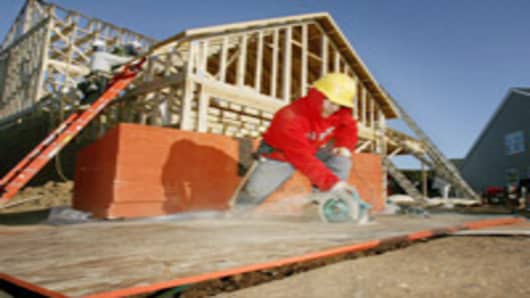Building materials group James Hardie Industries reported a worse-than-expected 61 percent drop in fourth-quarter profit on Thursday, hit by a slump in U.S. home-building, knocking its shares down as much as 8 percent.
The company, which makes most of its earnings in the United States, warned that construction work there was unlikely to grow in face of an overhang of unsold homes, a weaker economy, poor consumer sentiment and tighter credit.
"Indicators of future housing construction activity suggest some further weakness is to be expected," Chief Executive Louis Gries said in a statement.
Gries said the fourth quarter was disappointing because the normal seasonal pick-up in home-building expected in March in the United States had not come through.
Net operating profit, excluding expenses related to compensation it is paying to victims of asbestos-related diseases and plant closure costs, fell to $20.1 million for the January-March quarter, from $51.4 million a year earlier.
James Hardie's shares sank as much as 8.3 percent to A$5.53, and were last trading down 5.5 percent at A$5.70 in a broader market down 1.2 percent.
The company is focusing on cutting costs and increasing the market share of fibre-cement against other home-siding materials to cope with the housing downturn.
After closing a fibre-cement plant last October in Blandon, Pennsylvania, it decided to close its Hardie Pipe plant in Plant City, Florida, on Thursday, booking a A$25.4 million writedown in on the value of the plant.
It also wrote down $13.2 million in the quarter for buildings and machinery in the United States.
As a result, it booked a net operating loss of $146.9 million for the quarter, against a net operating profit of $103.1 million in the same quarter in 2007.
Its U.S. fibre-cement sales fell 20 percent in the fourth quarter as volumes fell, and its U.S. earnings before interest and tax fell 41 percent to $50.3 million due to higher manufacturing costs.
The company was once Australia's top maker of asbestos products. After several years of negotiations, it made the first payment of A$184 million ($177 million) last year for a compensation package for victims of asbestos-related diseases.


